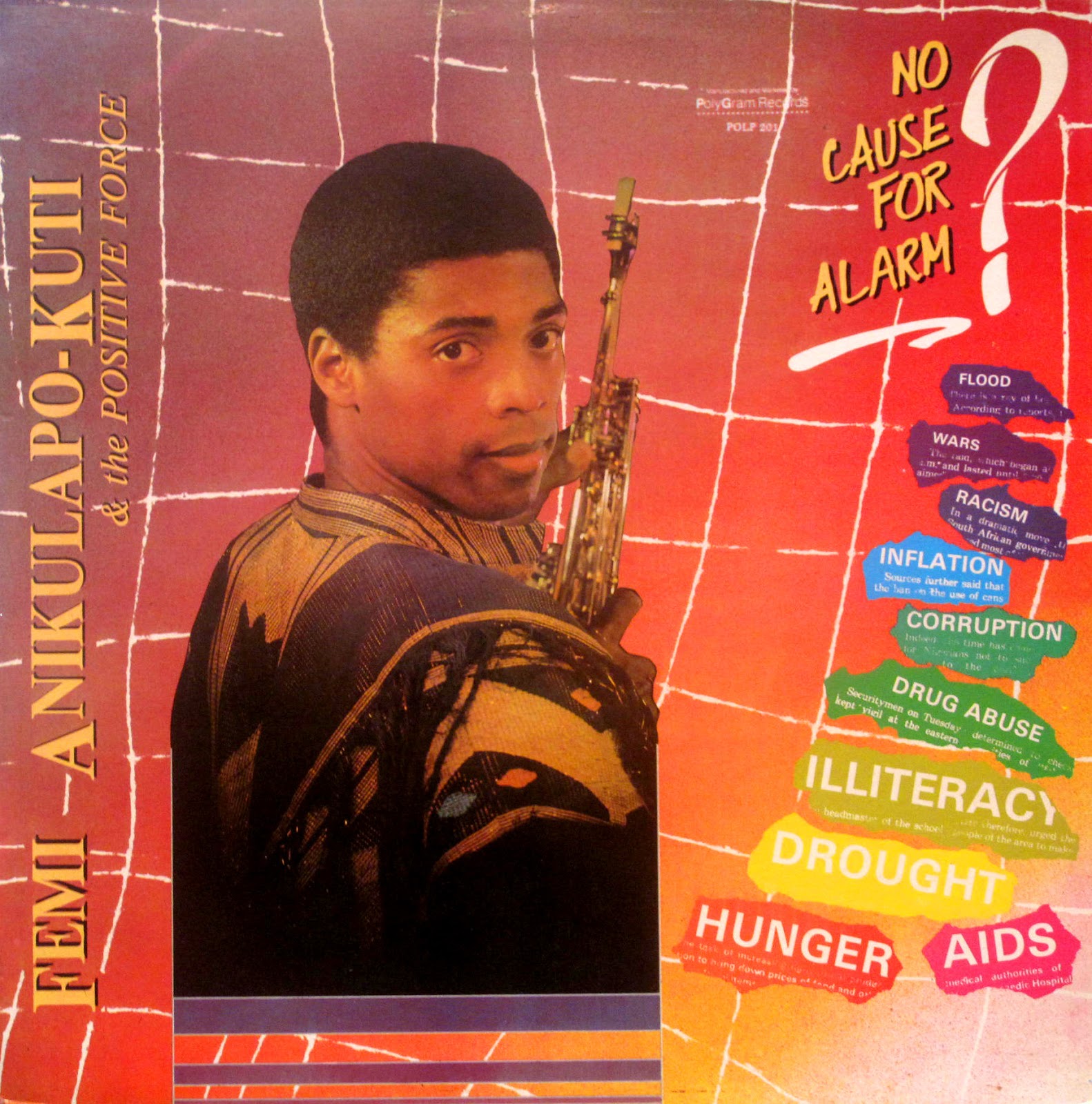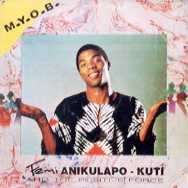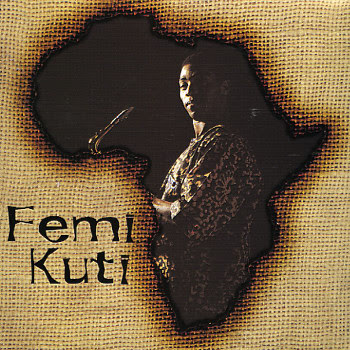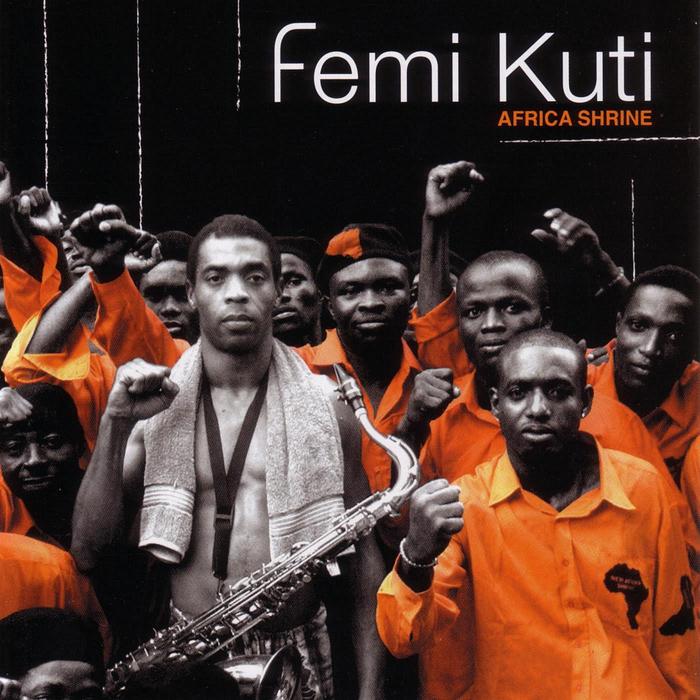
Real Name:
Olufela Olufemi Anikulapo Kuti
Music Genre:
Afrobeat
Jazz
Record Label:
Knitting Factory Records
Date of birth:
16-06-1962
Age:
62
Nationality:
NIGERIA
Femi Kuti
- Background
- Break
- Did you know?
The eldest son of Afro-beat legend Fela Anikulapo-Kuti, Femi Kuti (born Olufela Olufemi Anikulapo Kuti) spent years playing in his father's band before eventually rising to superstardom following his father's death in the late '90s. Since few artists can match the elder Kuti's musical legacy, Femi's association with his father has been both a blessing and a curse. On the one hand, it's never been difficult for Femi to garner press or attention, and MCA went out of its way to push his career with considerable amounts of publicity. Yet on the other hand, no matter his individual accomplishments, Femi will forever be known as Fela's son. Practicing a similar style of Afro-beat as his father, Femi helped introduce the percussive blend of jazz and funk music to the international masses beginning in the mid-'90s, along with his father's same sense of political activism. After his father's death in 1997, Femi suddenly found himself the subject of immense attention. He responded by signing with MCA and embarking on his solo career beginning with Shoki Shoki. He won critical celebration around the world and began mounting efforts to break into the U.S. mainstream in successive years.
Born in London and raised in Lagos, Nigeria, Femi began his musical career playing in his father's band, Egypt 80. In 1986, Femi started his own group, Positive Force, and began establishing himself as an artist independent of his father's legacy. In the mid-'90s, Motown offered him a record deal with its boutique label Tabu; Femi's eponymous debut album resulted. Released in 1995, the record won praise throughout Europe and Africa for offering a more streamlined and accessible version of his father's music. Femi embarked on an extended promotional tour, crossing first Africa, then Europe in 1996 and 1997. His solo career was off to a successful start, despite the dissolution of the Tabu label (and Femi's record deal with it).
However, this problem became the least of Femi's concerns when his father died of AIDS-related complications in 1997. Shortly afterwards, his sister, Sola, also suffered an untimely death, making 1997 a truly dark year for Femi. He would later write "'97," a song that candidly reflects on this particularly tragic time. Yet with tragedy comes opportunity in the world of music, and Femi ultimately signed a major-label record deal with Polygram in December 1997, only months after his father's death. MCA made the most out of the situation, repackaging and re-releasing much of Fela's catalog and setting the stage for Femi's MCA debut album in the process. Following months of press and hype, MCA released Shoki Shoki in early 1999 to widespread acclaim from such esteemed publications as The New Yorker, Rolling Stone, and Vibe, not to mention other smaller publications.
A year later, Femi returned with his second album, Fight to Win, and toured the States with Jane's Addiction in an effort to cross over to a more mainstream audience. Part of this crossover effort meant aligning himself closer to hip-hop and its sizable audience. Fight to Win featured a number of respected rap artists like Mos Def and Common. As expected, critics celebrated the album, though Western masses seemed rather indifferent to both the record and Femi's concert trek with Jane's Addiction. Over the next decade, several recordings of live shows and compilations were released, but for the most part -- with the exception of making a vocal cameo as a radio station DJ in Grand Theft Auto IV -- he avoided the recording studio, opting to tour instead. In 2008, he re-emerged with his first album in seven years, Day by Day, a definitive album that helped to establish Femi as a true original with his own unique style. His 2011 effort Africa for Africa was a mix of new and re-recorded older material. In 2013, a collection of all new work entitled No Place for My Dream was issued by Knitting Factory.
On December 19th 2014 a management deal between Chocolate City Music Group and Femi Kuti was reached. The news was announced via Chocolate City official instagram account, as well as Audu Maikori social media accounts.
Femi Kuti's Success came in 1995 with the release of Wonder Wonder under the self titled Femi Kuti album.
Did you know Femi Kuti thought himself how to play all the musical instruments he plays today?
Did you know Femi Kuti lives at Omole, Ikeja Lagos?
Did you know Femi Kuti only plays at the shrine in Nigeria?
Did you know Femi Kuti was one of the first Nigerian Artist to be nominated for a Grammy?
Discography
-

No Cause For Alarm?
Released in 1989
Produced by Polygram
-

M.Y.O.B.
Released in 1991
Produced by Meodie
-

Femi Kuti
Released in 1995
Produced by Tabu/Motown
-

Shoki Shoki
Released in 1998
Produced by Barclay/Polygram/Fontana MCA
-

Fight To Win
Released in 2001
Produced by Barclay/Polygram/Fontana MCA/Wraase
-

Africa Shrine (Live CD)
Released in 2004
Produced by P-Vine
-

The Best of Femi Kuti
Released in 2004
Produced by Umvd/Wraase
-

Femi Kuti The Definitive Collection
Released in 2007
Produced by Wrasse Records
-
.jpg)
Day by Day
Released in 2008
Produced by Wrasse Records
-

Africa for Africa
Released in 2010
Produced by Wrasse Records
-

No Place for My Dream
Released in 2013
Produced by Knitting Factory Records
References
-
By Jason Birchmeier of Rovi Media
Singles
-
1995
Title Album Wonder Wonder Femi Kuti -
1998
Title Album Beng Beng Beng Shoki Shoki -
1998
Title Album Sorry Sorry Shoki Shoki -
2001
Title Album '97 Fight To Win -
2004
Title Album Dem Bobo African Shrine
